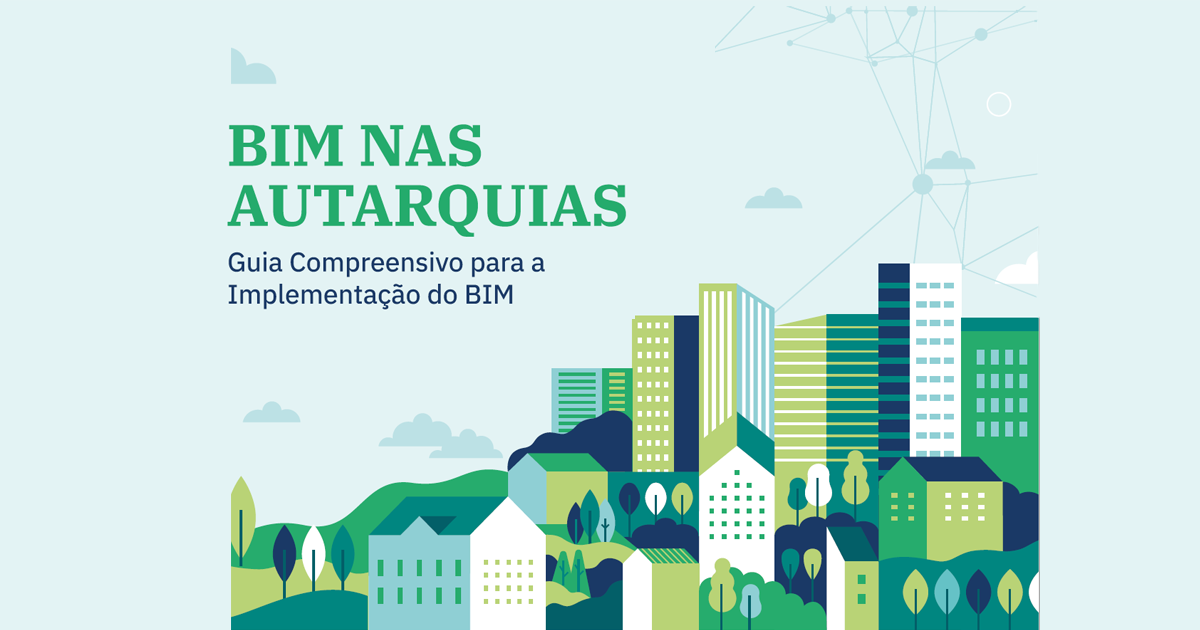The document “BIM in The Municipalities – Comprehensive Guide to the Implementation of BIM” was published, which has as its main ambition to sensitize the Municipalities to the theme of Building Information Modelling (BIM).
“The digital transformation that is felt in a generalized way, emerges in the construction industry as an unavoidable change, which can bring effective gains in efficiency, accuracy, and transparency. The transition to the digital context is, however, a complex challenge that should deserve special attention.”
This document emerges, in this context, as a guideline for the implementation of digitization of construction and infrastructure, and in particular BIM.
“The BIM methodology raises complex challenges that involve several areas of knowledge other than those related to the technological problem.”
“Thus, the implementation of BIM in an organization should deserve special care, recommending the elaboration of a rigorous analysis of the structure of the organization, its resources and competencies, its processes and working methods, its legal framework and technological infrastructure.
Recognizing the complexity of this innovative way of working and its impact on organizations, especially in organizations as diverse as municipalities, it becomes clear the relevance of a basic document that defines the fundamental concepts, to support BIM implementation initiatives in a municipality.
It is the main motivation of this document to ensure that any BIM implementation initiative in the Municipalities is able to follow international best practices, believing that, if so, there will be conditions for a progressive implementation of BIM in the national industry.”
You can access the full document here.
The realization and publication of this document were coordinated by António Aguiar Costa, Research, Development and Innovation Director of BUILT CoLAB, and had the contribution of several BIM professionals and academics in Portugal: Miguel Azenha, João Poças Martins, Ricardo Pinho, Luís Ribeirinho, Marta Campos, Inês Rodrigues, and Ricardo Cunha Reis. The preface is by Fernando F. S. Pinho, Coordinator of the Regional College of Civil Engineering of the Southern Region of the Order of Engineers.

